Abstract
Changes in the concentration of the components of complement produced by NaOC1 both in vitro and in vivo are recorded. C1, C4 and C7 are particularly sensitive to this oxidizing agent, although all components decrease at high concentrations of NaOC1. Following oxidation, complement componenets return rapidly to normal. Data are presented to indicate that part of this repair mechanism is due to the action of reducing agents such as ascorbic acid and part is due to the synthesis of the individual components. The unique sensitivity of complement components to oxidation make this treatment of potential value in suppressing the inflammatory response.
Full text
PDF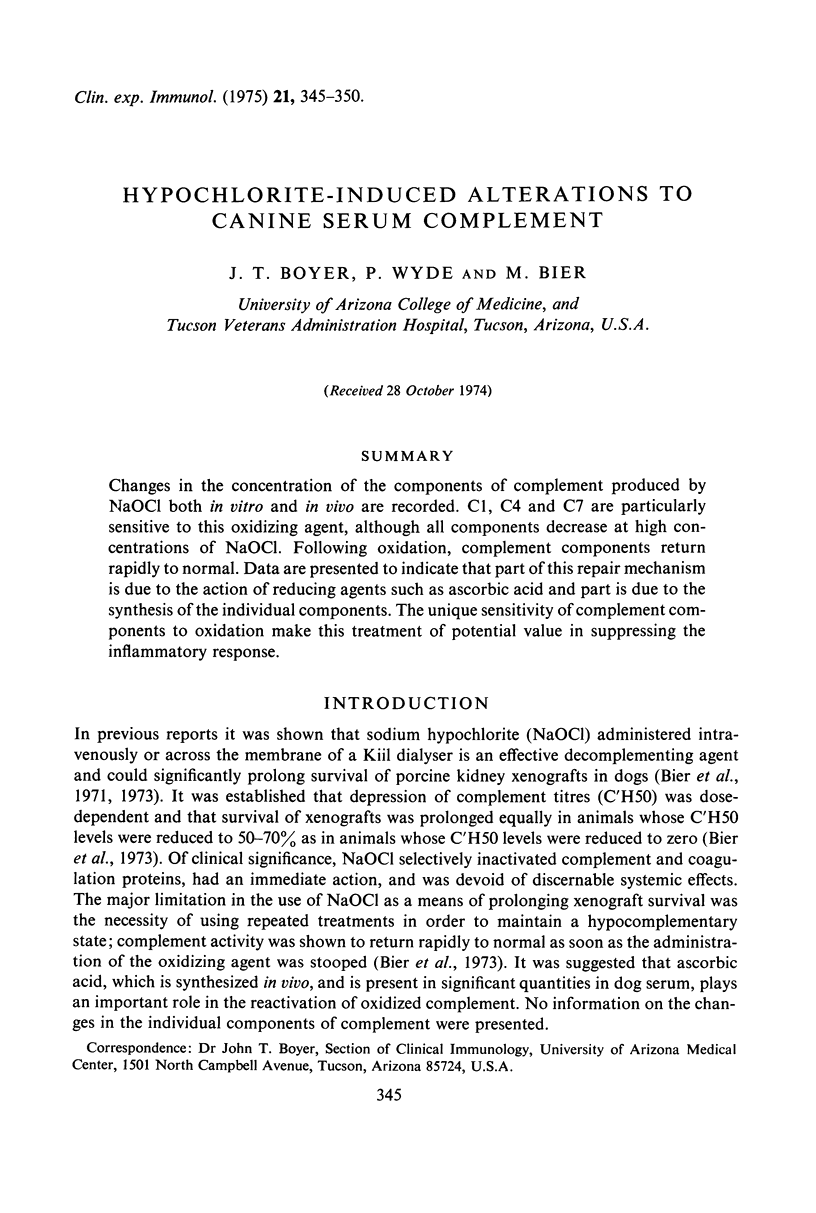
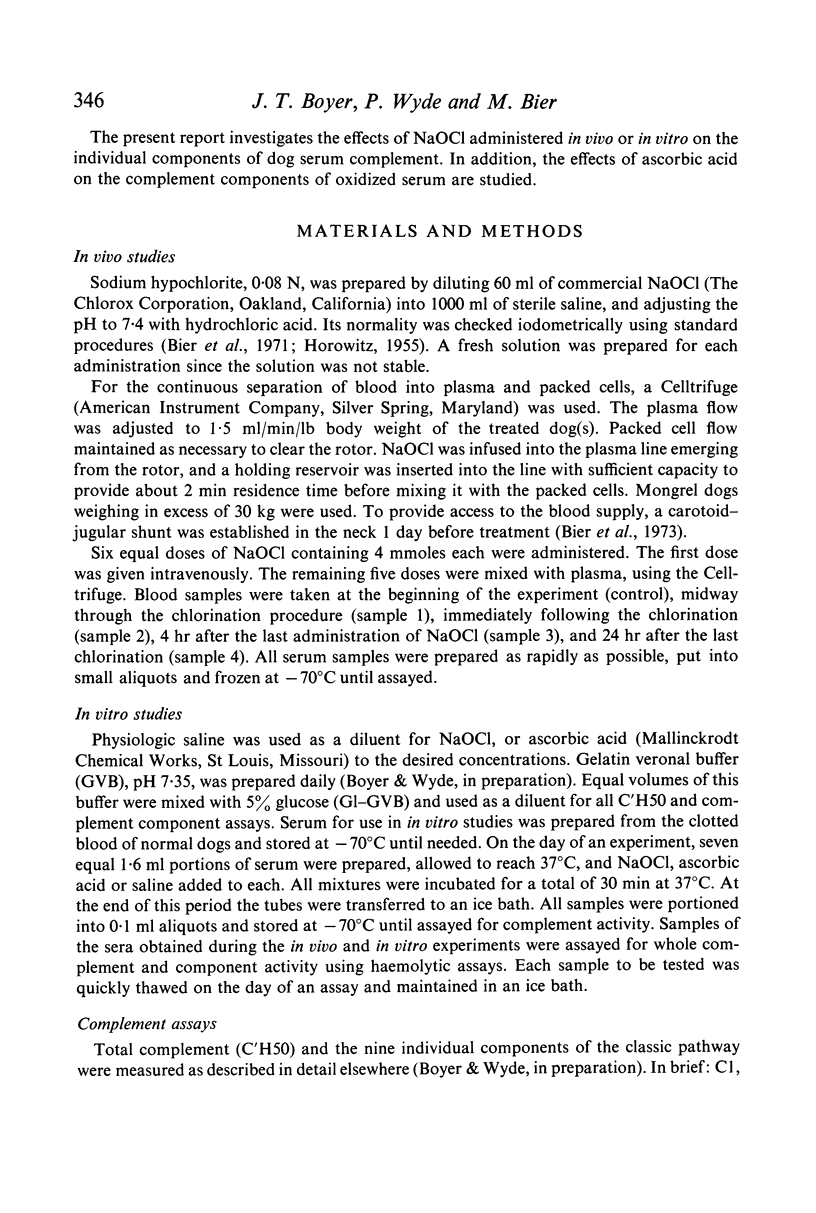
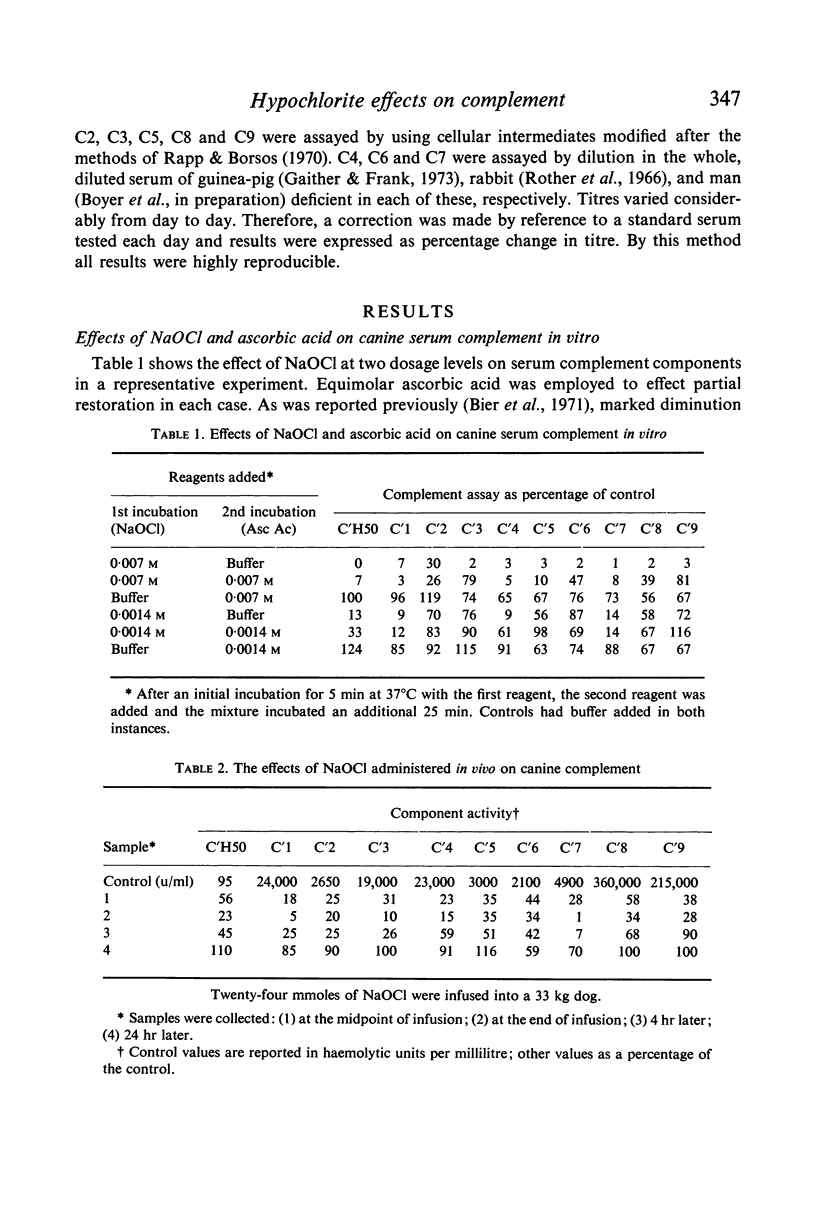
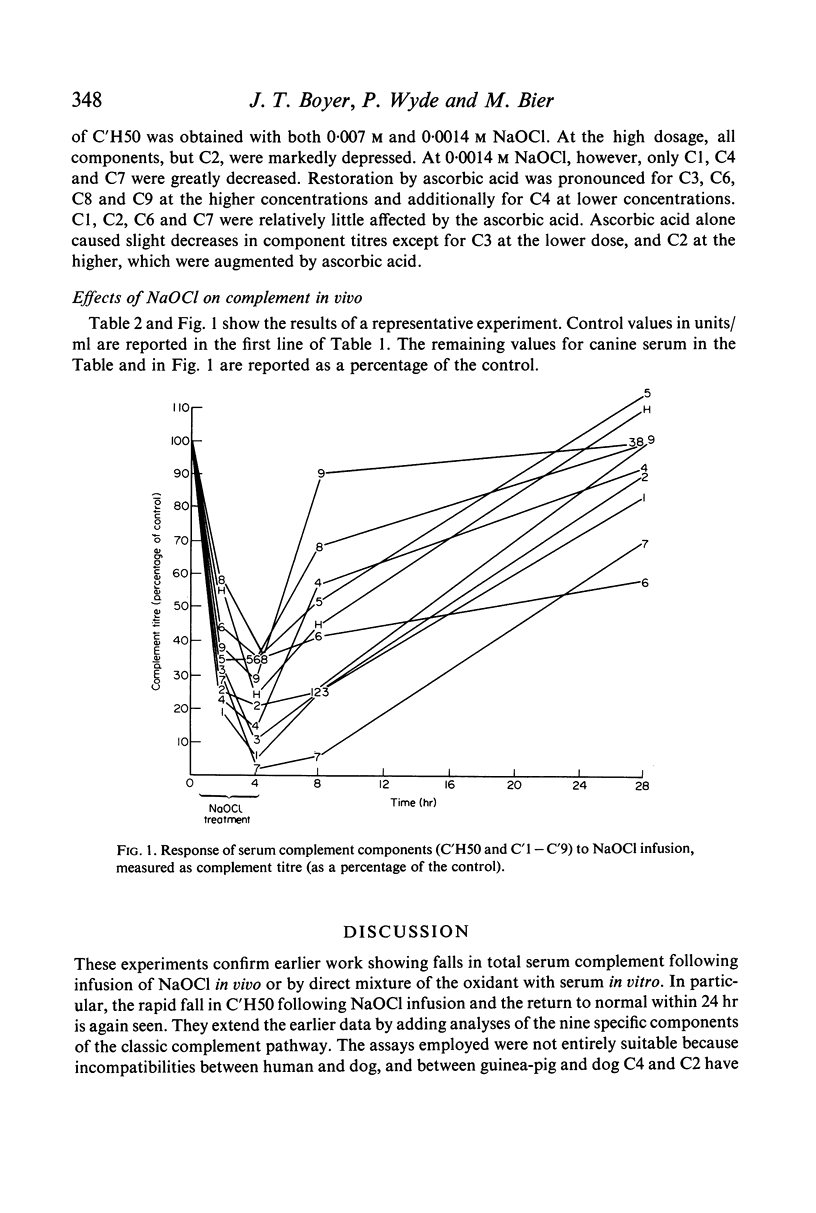
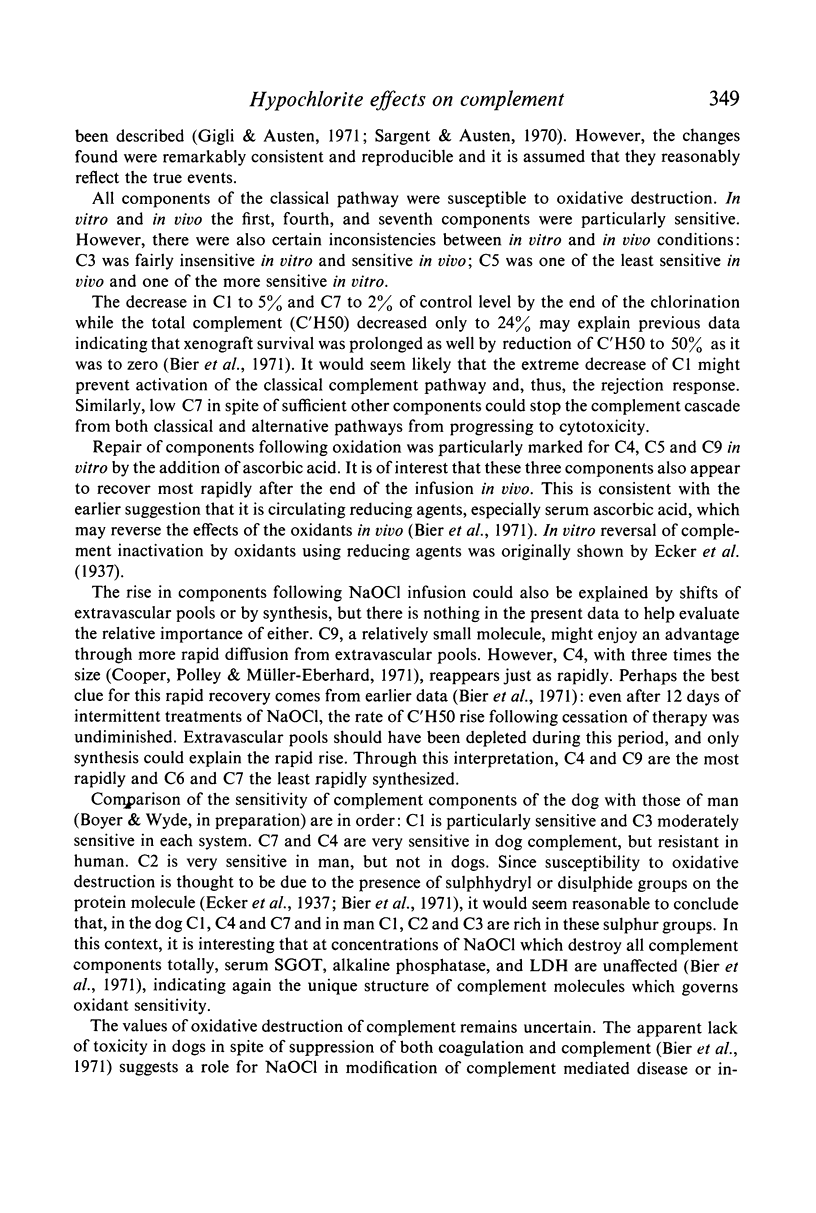
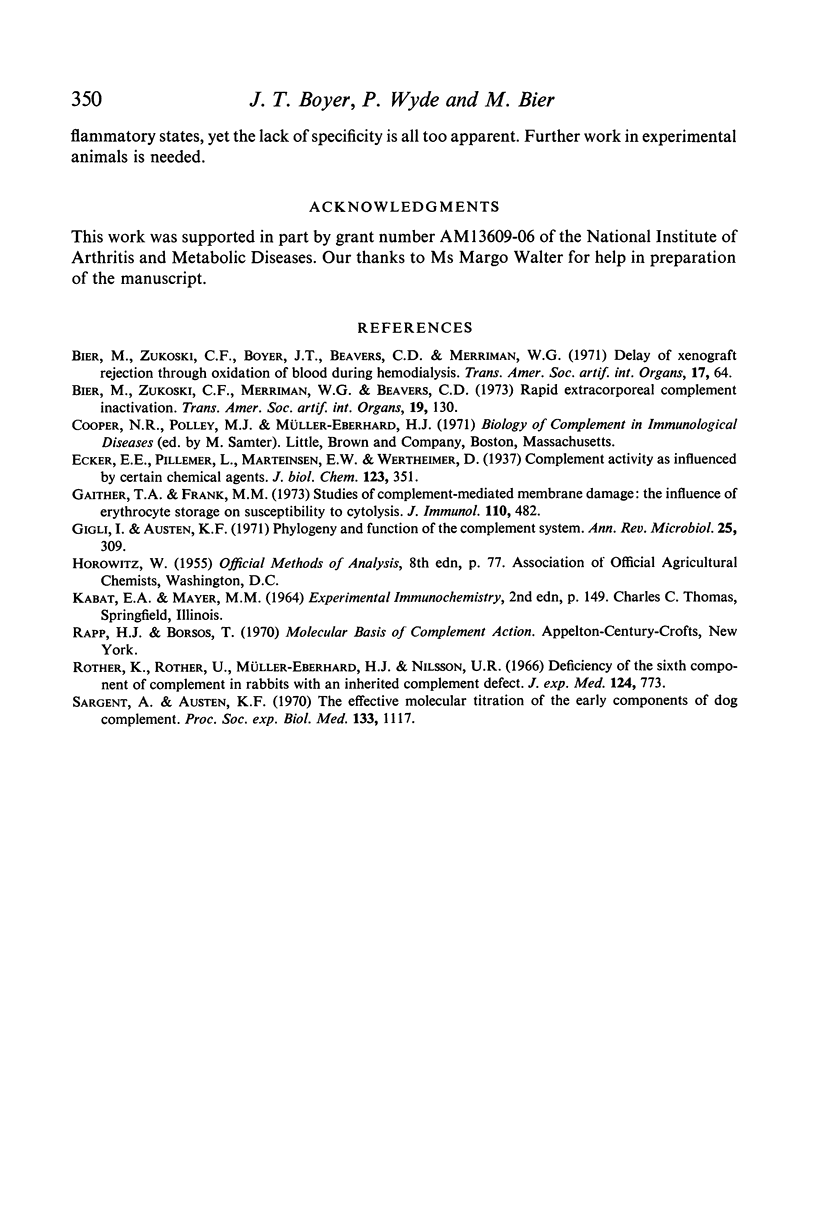
Selected References
These references are in PubMed. This may not be the complete list of references from this article.
- Bier M., Zukoski C. F., Merriman W. G., Beavers C. D. Rapid extracorporeal complement inactivations. Trans Am Soc Artif Intern Organs. 1973;19:130–137. [PubMed] [Google Scholar]
- Bier M., Zukoski F., Boyer J. T., Beavers C. D., Merriman W. G. Delay of xenograft rejection through oxidation of blood during hemodialysis. Trans Am Soc Artif Intern Organs. 1971;17:64–74. [PubMed] [Google Scholar]
- Gaither T. A., Frank M. M. Studies of complement-mediated membrane damage: the influence of erythrocyte storage on susceptibility to cytolysis. J Immunol. 1973 Feb;110(2):482–489. [PubMed] [Google Scholar]
- Gigli I., Austen K. F. Phylogeny and function of the complement system. Annu Rev Microbiol. 1971;25:309–332. doi: 10.1146/annurev.mi.25.100171.001521. [DOI] [PubMed] [Google Scholar]
- Rother K., Rother U., Müller-Eberhard H. J., Nilsson J. R. Deficiency of the sixth component of complement in rabbits with an inherited complement defect. J Exp Med. 1966 Oct 1;124(4):773–785. doi: 10.1084/jem.124.4.773. [DOI] [PMC free article] [PubMed] [Google Scholar]
- Sargent A. U., Austen K. F. The effective molecular titration of the early components of dog complement. Proc Soc Exp Biol Med. 1970 Apr;133(4):1117–1122. doi: 10.3181/00379727-133-34635. [DOI] [PubMed] [Google Scholar]


